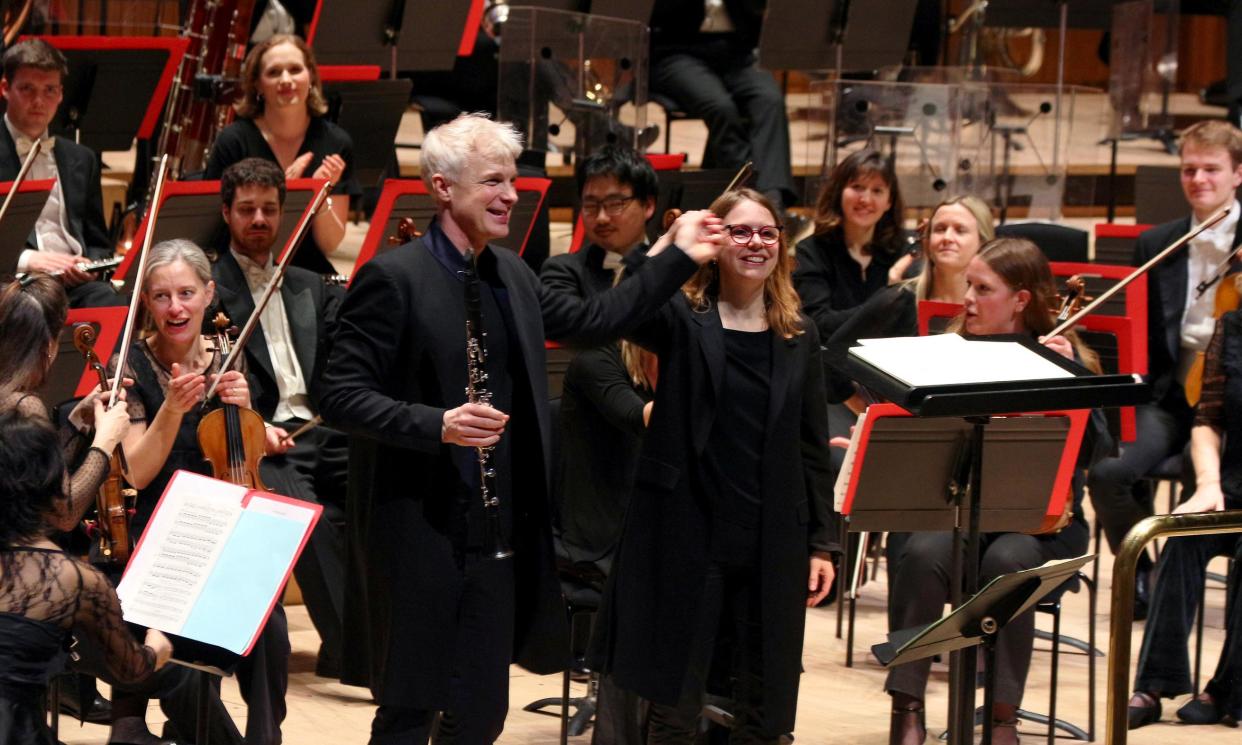Anna Clyne/Philharmonia review – Martin Fröst delivers torrents of bravura

The third UK premiere of Anna Clyne’s residency as the Philharmonia’s featured composer was the rather incongruous centrepiece of a concert conducted by Pekka Kuusisto that, with works by Bellini, Tchaikovsky and Bernstein, otherwise had a Romeo-and-Juliet theme. Clyne’s Weathered, co-commissioned by the orchestra, is a clarinet concerto, a substantial five-movement work composed for Martin Fröst, who was the soloist. It is a superb showcase for Fröst’s spectacular virtuosity, making use of all the tricks and extended techniques that he has made his own.
As the title suggests, Weathered carries an extra-musical programme. Clyne has said that the movements relate in turn to “a rusted bridge, a broken heart, a wind-worn castle, a majestic forest and a warming planet”, but it would make perfect musical sense without any knowledge of those associations. The writing for the soloist and the orchestra is strikingly vivid and colourful, from the opening moments, with their sombre, plainchant-like references, to the end of the finale almost half an hour later when the plainchant returns to usher in the quiet, desolate close.
Fröst was a compelling presence, whether singing while playing, exploring unearthly harmonics, soaring to the highest limit of the clarinet’s range, or exploding in torrents of bravura. Other soloists, and other orchestras, will doubtless take up Clyne’s score – but they will do very well to match the brilliance of this performance.
Earlier in the evening, next door in the Purcell Room, Clyne had introduced the second of two programmes she has curated this season in the Philharmonia’s Music of Today series – four pieces for wind instruments by female composers, three of them completed within the last few years and inspired by the work of American artists and poets. There was Nathalie Joachim’s rather formulaic wind quintet Seen, based on portraits by Whitfield Lovell, Clyne’s own rapturous Overflow, for double wind quintet, after a poem by Emily Dickinson, and the world premiere of Grace-Evangeline Mason’s The Water Garden, after words by Amy Lowell, which adds a harp to the double quintet for an intricate, luxuriant parade of aqueous imagery.

 Yahoo News
Yahoo News 
